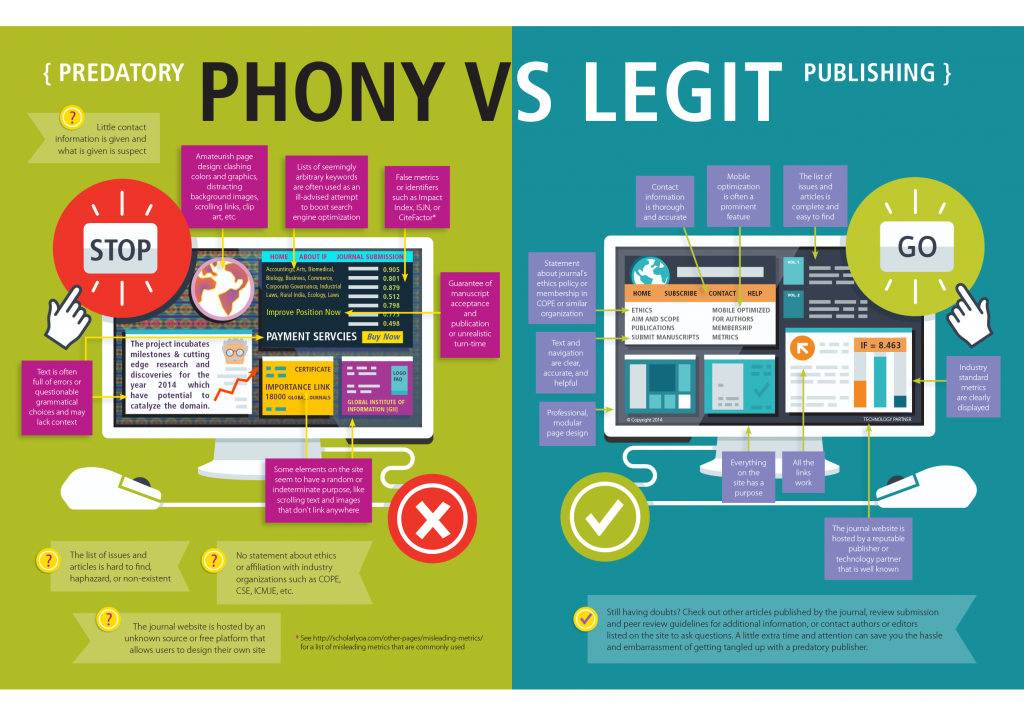Authored by the members of the UConn Library Scholarly Communication Coordinating Group
While many scholarly journal publishers offer high quality services, some publishers engage in what are considered predatory practices. Open access journals sometimes collect fees from authors called “article processing charges” or APCs. The fees are intended to cover publishing costs formerly covered by journal subscriptions and are often legitimate. However, some publishers project a deceptive profile of respectability while providing poor service and poor outcomes to authors (such as inadequate peer review or editorial services.) These publishers view the APCs collected from authors as primarily a revenue-generating opportunity. Examples of predatory practices to be aware of can include:
- Deceptive advertising regarding rigorous peer review when in fact articles are approved for publication in a matter of weeks or even days
- Lack of clarity on author payments until acceptance of articles and unwillingness to let authors withdraw once the charges were made clear
- Misrepresenting scientists as reviewers and editors who never agreed to do so
- Fabricating lists of unsubstantiated “impact factors”
- False claims that journals are indexed in literature databases
- False promotion of scholarly conferences listing known scientists as organizers or participants who had not, in fact, agreed to participate
- Misleading journal titles similar to that of well-known prestigious journals
A recent example of a large predatory publisher with a judgment entered against them in the US legal system is that of Omics International
Authors attempting to avoid predatory journals and trying to find quality journals to publish in can consult the UConn Library guide Evaluating Journal Quality for assistance and ideas or Predatory Journals & Conferences: Guide to Publisher & Organization Evaluation designed to for Health Sciences professionals.

